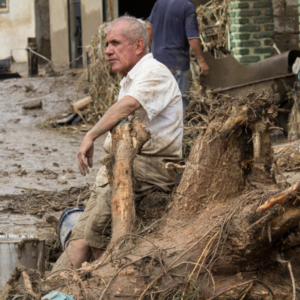Come Hell Or High Water: Will You Be Prepared If Disaster Strikes?

Come Hell Or High Water: Will You Be Prepared If Disaster Strikes?
October 12, 2022
Life is always a series of trade-offs – weighing the risks versus benefits of your decisions. For many, especially those who have retired, choosing a place to spend retirement years may mean prioritizing good weather or leisure activities and a low-cost lifestyle over the risk of occasional bad weather. Retirees in Florida recently learned this lesson, with the destruction caused by Hurricane Ian. It appears that the majority of those who lost their lives during Ian were older adults, and even if they managed to escape, so many have now lost their retirement homes and way of life. As one healthcare professional shared while sheltering with seniors during Ian, “If I could impart one lesson from Hurricane Ian, it would be when in doubt, get out.” Unfortunately, not everyone heeded that advice when Ian approached, and among those who remained and survived, their lives will not return to a level of normalcy for some time, if ever again.
None of us can predict the future but it’s a valuable lesson to consider: If, due to a weather emergency, be it a heatwave, hurricane, fire, or freezing temperatures (or some other natural or manmade disaster), would you be prepared to leave? Would you know what to take? How to get out? Where to go? How to plan for the future, especially if you cannot return and may lose your belongings? For many, health conditions or mobility limitations mean that quick exits are perilous. If you’re in need of electricity to power a device you rely on, you’re even more vulnerable if you have to leave. And while many organizations and FEMA recognize the unique vulnerability of older adults when disasters strike, the reality is that you yourself need to be aware of what community resources are available and accessible, and you need to develop your own individual emergency plan, given your specific circumstances.
How do you plan? There are major issues you need to first tackle before you get to the minutiae of your particular plan. So, big picture: Are you networked into your local community resources? Would you get phone calls or radio alerts about approaching bad weather? Do you know where your community would house older adults, especially those with particular needs? Who would be a part of your local support network, especially if you are alone or family members live a distance away? For more of the “meta” questions you need to consider, find your flashlight and read advice and recommendations from AARP, the CDC, Ready.gov (an official government website with valuable links to help you in an emergency situation), and a comprehensive guide from Aging.com that breaks down specific suggestions depending on the nature of the disaster.
For your particular situation: Is your phone set up so that emergency responders can access your vital medical records and emergency contacts? Speaking of emergency contacts, the Red Cross has an easy-to-download form you can fill out and keep in your wallet or pocket when needed. There is also an electronic emergency contact registry that first responders know to search in case you are found without contact information. Will your emergency contact know that he or she may be contacted in case of an emergency? Is this person aware of your essential info if they are called upon? Moreover, have you set things up to run as smoothly as possible if you need to leave quickly and your return date is uncertain? Whether due to a climate disaster or a personal medical emergency, you should have things in place like electronic delivery of your benefits and electronic bill paying, along with online access to your financial affairs. Who will watch over your house or take care of your pets if you have to evacuate? In the heat of the moment, what will you grab to take with you? Depending upon the situation, you may be without electric power, out of your home indefinitely, or not have a home to return to. So you should consider personal items and medications, important legal and financial documents, and memorabilia you couldn’t live without, all needing to fit in an easy-to-grab bag that you might take at a moment’s notice. Whether you’ll be sheltering in place or seeking shelter elsewhere, planning in advance is essential for riding out whatever emergency arises. For more suggestions on what to pack or have on hand, find your overnight bag and read here.







